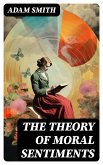In "The Fable of the Bees," Bernard Mandeville presents a provocative and satirical critique of society that intertwines moral philosophy with economic theory. Set in the early 18th century, the work unfolds as an allegorical tale where a bee community embodies the complexities of human vice and virtue. Mandeville employs an innovative verse form and a blend of humor and sharp observation, delivering a message that challenges the contemporary moralistic view of individual actions as inherently good or bad. He posits that private vices can lead to public benefits, igniting debates about economic growth and ethical self-interest that resonate through the ages. Bernard Mandeville, a Dutch philosopher and economist, was a pioneer of social thought whose ideas were often at odds with the prevailing moral philosophies of his time. His background as a physician and a scholar exposed him to both the intricacies of human behavior and the emerging economic theories of the Enlightenment. Mandeville's keen awareness of the tensions between personal morality and societal welfare profoundly shaped his work, enabling him to articulate a revolutionary perspective on the interplay of ethics and economics. This seminal text is indispensable for those seeking to understand the foundations of modern economic thought and moral philosophy. Readers will appreciate Mandeville's unapologetic examination of human nature, and the book will inspire critical reflection on the delicate balance between individual desires and societal goods.
Dieser Download kann aus rechtlichen Gründen nur mit Rechnungsadresse in A, B, BG, CY, CZ, D, DK, EW, E, FIN, F, GR, H, IRL, I, LT, L, LR, M, NL, PL, P, R, S, SLO, SK ausgeliefert werden.









